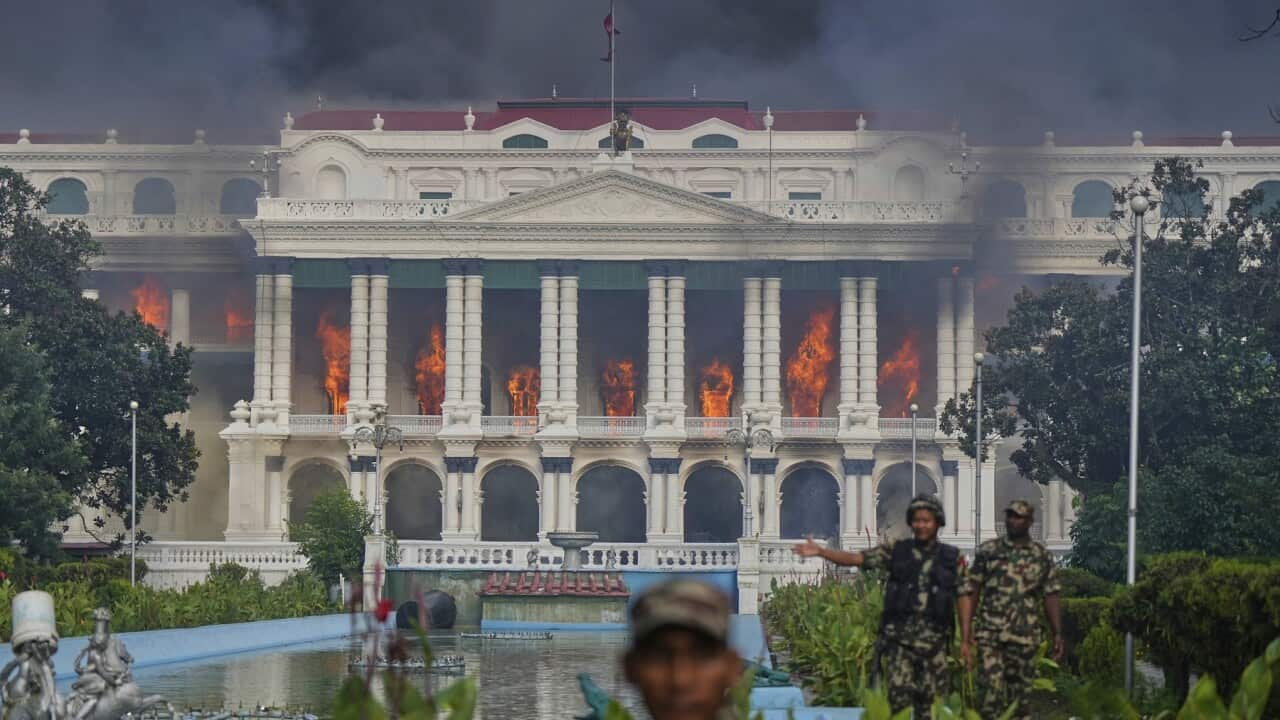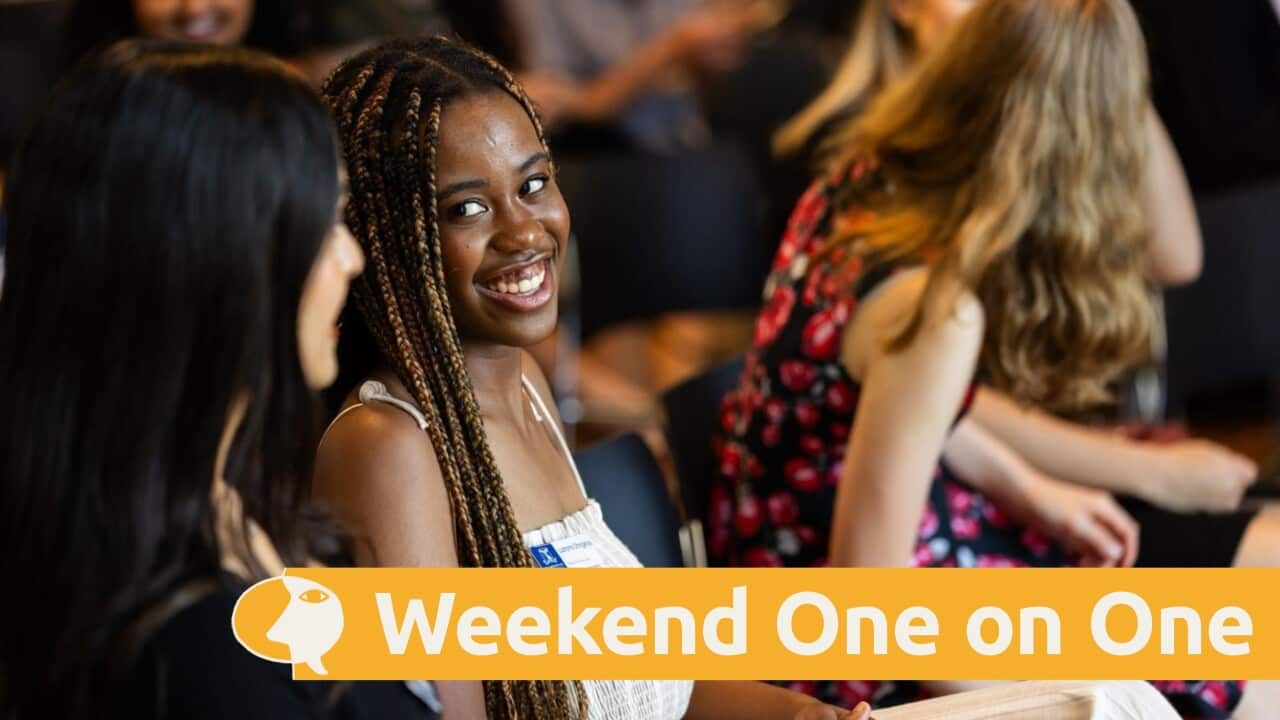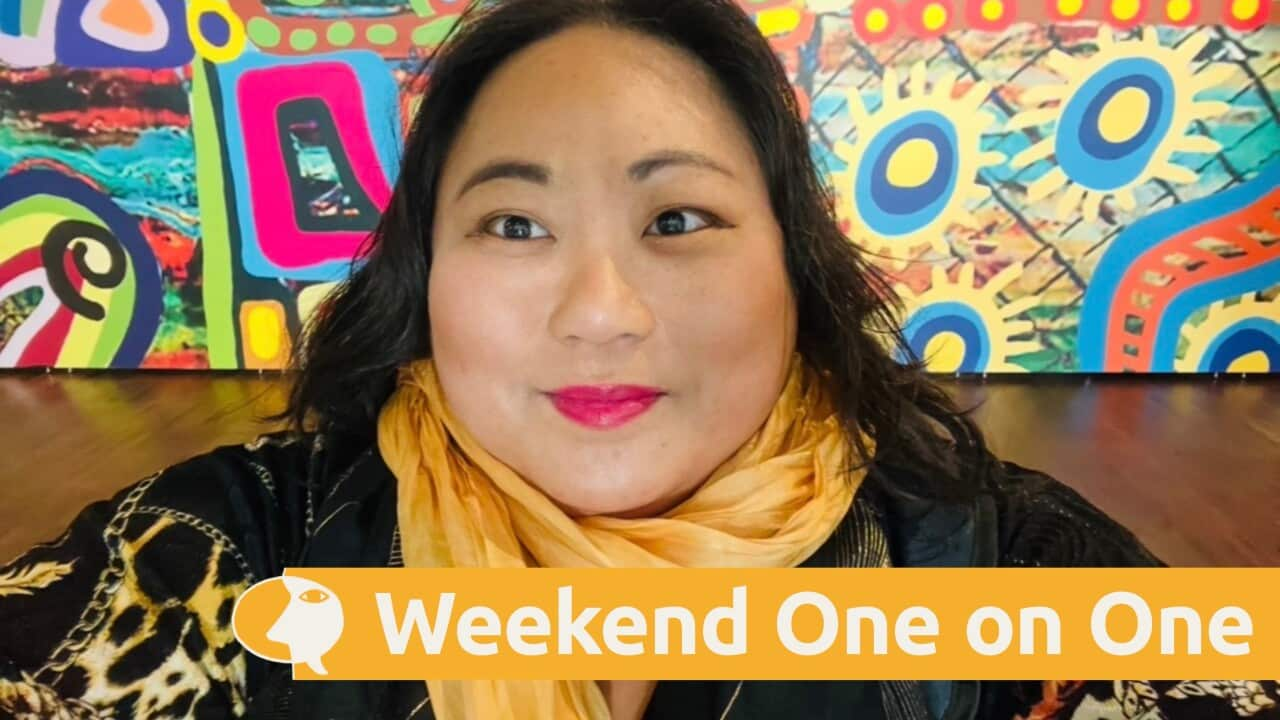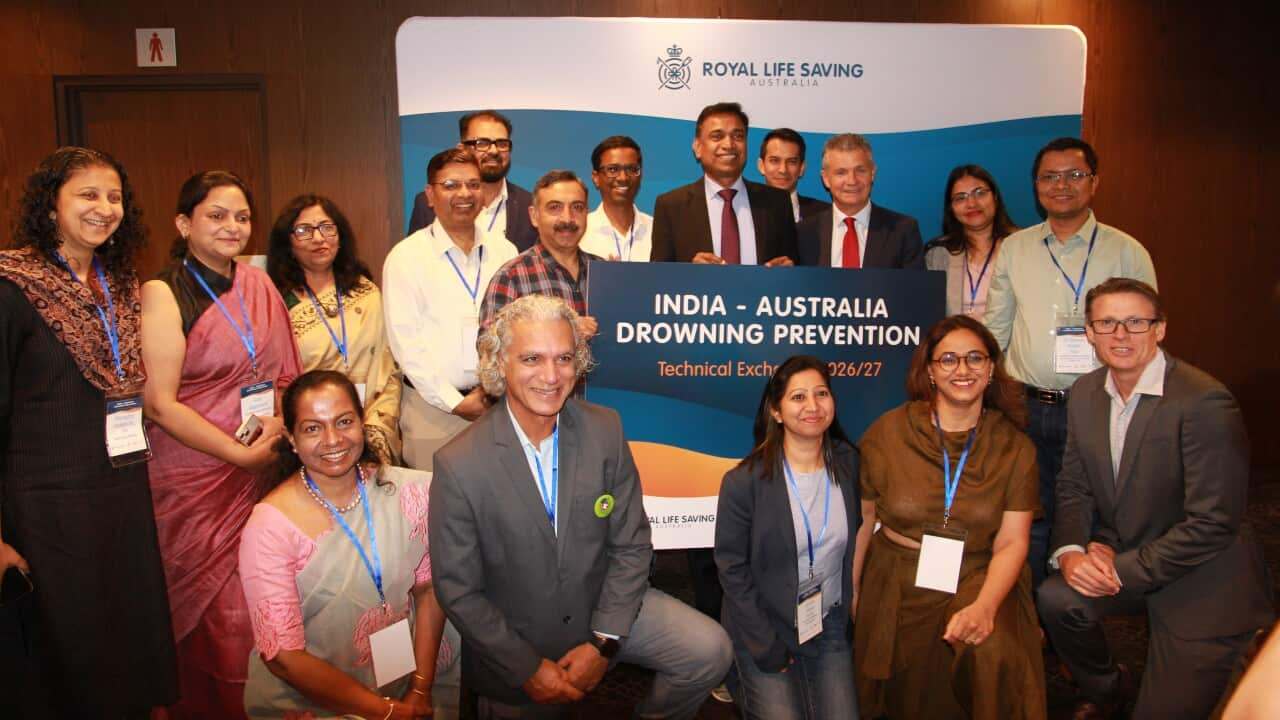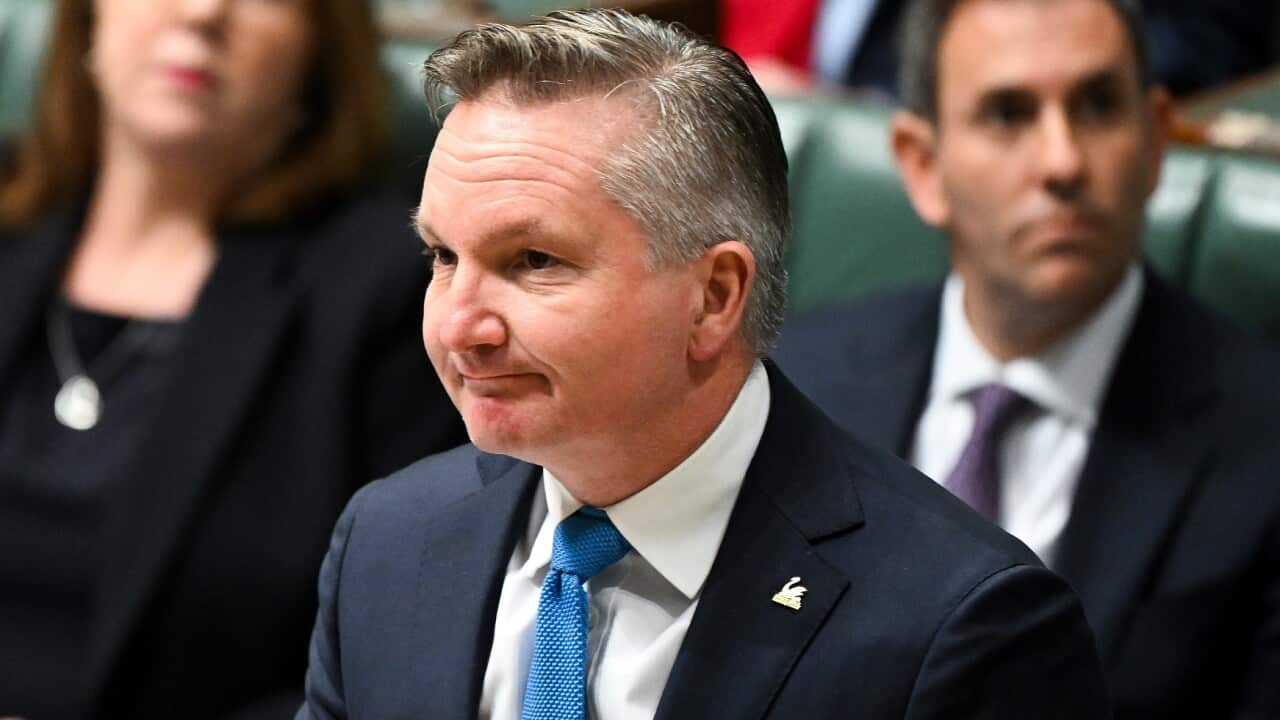Produced in collaboration with SBS Nepali
Listen to Australian and world news, and follow trending topics with SBS News Podcasts.
TRANSCRIPT
PROTESTORS: “We are witnessing the future. The scene is dark, very very dark”, protesters shouting slogan in Nepali “We don’t want Oli”
Nepal is witnessing its worst unrest in decades.
The country's Prime Minister Khadga Prasad Oli has resigned amid anti-government protests.
It comes at the same time protesters set fire to Parliament and the homes of some of the country's top political leaders.
The houses set on fire include those of the leader of the largest party Nepali Congress, the President and the Home Minister.
The violent protest in the country's capital Kathmandu was initially triggered by a "Gen Z" protest movement sparked by a ban on social media, that was later lifted.
It was fuelled by growing frustration and dissatisfaction against the political parties in the country over corruption.
At least nineteen people were killed and more than 100 others injured during rallies a day earlier.
The United Nations High Commissioner for Human Rights Volker Turk is pleading with security forces in the country to exercise utmost restraint to avoid further such bloodshed and harm.
"It is important that the voices of young people are heard. Protesters have the right to express peacefully their political frustrations and grievances over corruption and a ban on social media platforms. I have received concerning reports of unnecessary and disproportionate use of force by the security forces."
According to Amnesty International, police on Monday were trying to crush the rallies - as they used live ammunition.
Nepal's military has warned against "activities that could lead the country into unrest and instability" in the nation's 30 million people.
Several social media sites - including Facebook, YouTube and X - were blocked on Friday, after the government cut access to 26 unregistered platforms.
It's understood since then, videos contrasting the struggles of ordinary Nepalis with the children of politicians flaunting luxury goods and expensive vacations have gone viral on TikTok, which was not blocked.
But on Tuesday, despite the government lifting its order and the apps returning online, protests reignited, spreading from the capital to multiple cities nationwide.
Nepali Australians spoke to SBS Nepali saying they have been saddened by developments in their home country that have seen deadly protests and the resignation of the Prime Minister in a matter of days.
Kusum Magar, President of the Craigieburn Nepalese Community has told SBS Nepali that the official response to the protests has been a massive over-reaction to legitimate concerns.
"I'm very sad, and mentally we are really disturbed and settled down. I condemn the demonic actions from the government, our new government. This is really bad action."
According to government statistics, people aged 15-40 make up nearly 43 per cent of the population in Nepal.
Mani Shrestha is a student in Sydney who's been living here for almost a decade now.
"It's not just about the government wanting the international social media to be registered in Nepal and have these compliance sources around. Whatever they have you know with the flowery words on it, it's not just about that. It's about the government wants to control how people talk.”]
Kamal Timilsina is the Treasurer for the Rashtriya Swatantra Party, Australia Chapter in Western Australia.
He offers his deepest condolences to the lives lost.
"It's not come all of a sudden, it was an accumulated position from the last 20 years against the ruling party in Nepal. That's what we believe from the overseas and all of the diaspora community I believe."
Keshav Sharma from Brisbane is the President of Queensland Nepalese Cultural Centre.
"I think the problem could have been resolved with some other means, but the government choose to use forces which again is unprecedented and unwarranted. We are with the people who have been affected by the incident and I think this will go as a dark day in Nepal's history."
Yakindra Timilsina who's the President of Nepalese Association of Victoria tells SBS Nepali he stands in solidarity with Nepal's young generation, and calls for a collective effort to protect and empower them.
"I'm actually saddened by the recent tragic loss of young members of Generation G in Nepal, their deaths are heartbreaking, loss for the family and setback for the nation's future. Let xx Vic action to address the challenges facing youth including social economic and mental health issues."
Manisha Chaulagain is a community member from Melbourne.
She says she has been heavily traumatised by the incident.
"I know what Gen Z protesters want, they have only got two agendas that needs to be addressed, but I'm so unclear about what the government wants. I wish I knew what they want so that this can be ended. There will be no more dead bodies on the road. How many dead bodies does the government want for the problem to be addressed. I'm heavily concerned to the point I've never been this concerned in my life related to politics."
Aabha Adhikari has told SBS Nepali that while it was powerful to see young people raising their voice for change, it was terrible to see so many lose their lives amid the turmoil.
Readers seeking support with mental health can contact:
Lifeline: 13 11 14
Beyond Blue: 1300 22 4636
Suicide Call Back Service: 1300 659 467
For children between the age of 5 to 25 Kids Helpline: 1800 55 1800
In an emergency, call 000.
For translating and interpreting services, contact 13 14 50 or visit the SBS Mind Your Health portal for content in various languages.
Embrace Multicultural Mental Health supports people from culturally and linguistically diverse backgrounds.
